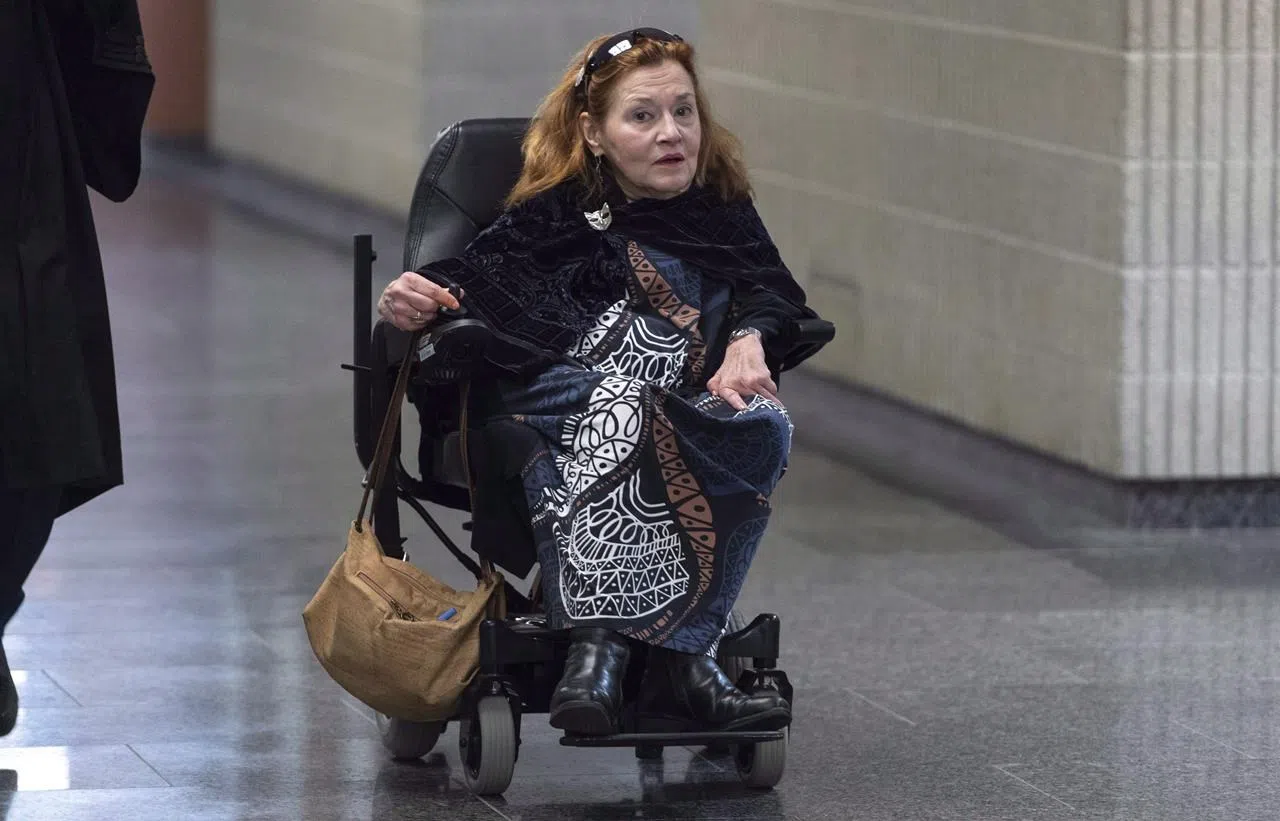
Quebecer in court seeking assisted death wants control of her destiny
MONTREAL — Two Quebecers suffering from incurable degenerative diseases are arguing that laws governing medical assistance in dying are unconstitutional and that legislators exceeded their powers by setting overly strict criteria.
The case brought by Nicole Gladu and Jean Truchon against the governments of Quebec and Canada entered its final phase Monday with the beginning of closing arguments before Quebec Superior Court Justice Christine Baudouin.
Under federal law, a person’s natural death must be “reasonably foreseeable” before they can receive medical assistance in dying. The Quebec law similarly says people must “be at the end of life.” Because Gladu and Truchon did not meet the criteria, doctors turned down their requests.
They are asking the court to allow doctors to provide them with medical assistance in dying and to invalidate the articles of the federal and provincial laws that blocked their requests. They argue the 2015 Supreme Court of Canada decision that decriminalized medical assistance in dying established suffering, not imminent death, as the most important consideration.


